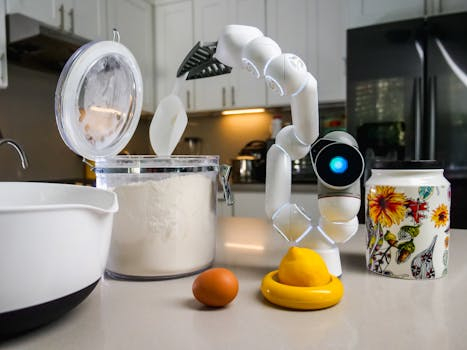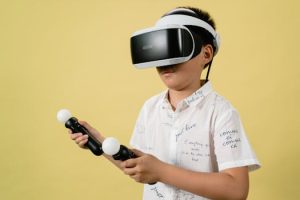Neuralink-Controlled Appliances: Brain-Computer Interfaces for Home Automation
The advancement of technology has allowed us to come closer to a future that once seemed only possible in science fiction movies. One of the latest innovations to capture our imagination is Neuralink, a brain-computer interface (BCI) created by Elon Musk’s company, Neuralink. This technology has the potential to revolutionize the way we interact with appliances in our homes. No more fiddling with remote controls or using voice commands, with Neuralink-controlled appliances, all you have to do is think, and the devices will respond. In this article, we will explore the possibilities of Neuralink-controlled appliances and their potential impact on home automation.
What is Neuralink?
Neuralink is a neurotechnology company that was founded by Elon Musk in 2016 with the goal of developing a BCI that can be implanted in the human brain. The company’s ultimate aim is to merge human brains with artificial intelligence (AI) to enhance human capabilities and potentially even combat neurological diseases.
The Neuralink device, called the “Link”, is a tiny chip that is inserted into the brain through a small incision made by a robot designed by Neuralink. The chip contains numerous threads, thinner than a human hair, that are connected to electrodes and can record and stimulate brain activity. The Link communicates wirelessly with an external device, allowing the user to control it with their thoughts.
Neuralink-Controlled Appliances and Home Automation
Advancements in home automation have made our lives easier by allowing us to control various devices through our smartphones and voice commands. However, with Neuralink, the possibilities are limitless. Imagine being able to control every device in your home just by thinking about it.
With a Neuralink implant, you could turn on the lights, adjust the thermostat, or even start your washing machine with just a thought. No more searching for lost remotes or trying to remember the right voice command. Plus, the device can also learn and adapt to your habits, making it more efficient and personalized.
Energy Conservation and Cost Savings
Neuralink-controlled appliances have the potential to make our homes more energy-efficient and save us money on utility bills. With the system’s ability to learn and adapt, it can optimize energy usage and adjust appliances based on your daily routines. This means no more leaving the lights on or forgetting to turn off the AC, resulting in significant cost savings in the long run.
Improved Accessibility for People with Disabilities
For people with disabilities, Neuralink-controlled appliances can be life-changing. Imagine being able to use household appliances without the need for physical movement. This technology can help those with paralysis, muscle weakness, or mobility impairments to have more independence and control in their daily lives.
Privacy and Security Concerns
As with any new technology, there are concerns about privacy and security with Neuralink. The company has stated that all data collected by the device will be encrypted and kept confidential. However, there is still a risk of potential hacking, and some people may have reservations about having a chip implanted in their brains.
Neuralink has addressed these concerns by assuring that the device will have multiple layers of security and can be easily removed if necessary. In addition, the company plans to conduct extensive testing and FDA approval before making the device available to the public.
The Future of Neuralink-Controlled Appliances
The possibilities of Neuralink technology extend far beyond home automation. With its ability to interface with the human brain, it can potentially be used in multiple industries like healthcare, transportation, and even gaming. It can also be used to treat various neurological conditions like Alzheimer’s and Parkinson’s disease.
Although Neuralink-controlled appliances are still in the development stage, the technology is rapidly advancing, and it won’t be long before it becomes a reality. With its potential to enhance human capabilities and improve our quality of life, Neuralink is undoubtedly a game-changer in the world of technology.
The Ethical Debate
As with any technological advancement, there are ethical concerns that need to be addressed. Neuralink raises questions about the impact of merging humans with AI and the potential consequences of such a merge. It is crucial for society to have an open and honest discussion about the ethical implications of Neuralink before it becomes widely available.
Conclusion
The concept of controlling appliances with our thoughts used to be something only seen in movies, but with Neuralink, it is quickly becoming a reality. This technology has the potential to change the way we interact with our homes and even ourselves. However, its success will heavily depend on addressing privacy and security concerns and ensuring ethical use. Whether we are ready or not, the future of Neuralink-controlled appliances seems to be closer than we think.











